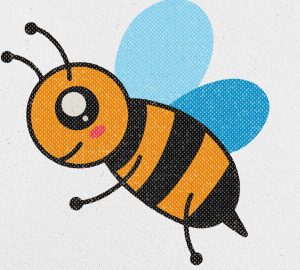Here’s what we know about Monkeypox
If you’ve been following the news recently you may have heard of an emergent disease called Monkeypox. Coming from a post-pandemic world, news like this raises concern for many that society will regress back into long indoor quarantines, online social gatherings and general limitations in public due to health concerns. Because of this, we have a scared but careful and more educated public on how to handle future disease outbreaks.
What is Monkeypox?
Monkeypox is a virus of the Orthopoxvirus genus in the family Poxviridae. Scientists are still working on tracing its origins, but believe that it has been silently affecting the public since 2018 and stems from smallpox. Currently there are a total of about 24,000 US cases with one resulting death and about 62,000 worldwide cases.
How is it transmitted?
Monkeypox is transmitted by close contact with another person who is infected. Particularly through body fluids, lesions. According to the World Heath Organization and the Center for Disease Control, the highest population that is being affected is men in their 30s who have sex with other men. However, it is very important to note that anyone can be affected by Monkeypox regardless of age, sex, race or sexual orientation. Monkeypox is also transmittable through objects. Materials that touch or come in close contact with body fluids like sweat are most at risk. This includes clothes, bedding and other common household objects. At this time, more studies are needed to understand the risk of transmission from household objects. However, a recent study found that inside of an infected persons home, 70% of the objects had the disease still lingering on them.
What does Monkeypox look and feel like?
Typical Monkeypox symptoms include rash, fever and swollen lymph nodes. In severe cases, Monkeypox symptoms include large, painful blisters on the skin. Early symptoms include fever, respiratory issues, chills, exhaustion, headache and muscle aches.
What can I do?
According to the CDC, the best things we can do to prevent Monkeypox are avoiding contact with those who we know have Monkeypox, avoiding contact with dead animals and washing our hands often. Although Monkeypox is not a sexually transmitted disease, it is commonly spread through sex. Communicating with your partner or someone you want to engage in intimate activities with is especially important right now. Let your partner know about the symptoms of Monkeypox and talk with each other about any unexplained rashes or lesions in areas around the mouth, on skin or around genitals. In some areas where Monkeypox is more rampant, reducing sexual activity, especially hookups, may be of interest to some. The CDC compiled a great list of tips for having safe sex during the Monkeypox outbreak.
Monkeypox vaccine
The primary vaccine being used to combat the spread of Monkeypox is one that was developed for smallpox called JYNNEOS. The JYNNEOS vaccine is given in two separate doses, 28 days apart. The vaccine is considered effective 14 days after you receive your second dose. Learn more about how the JYNNEOS vaccine works here. The ACAM2000 vaccine is being used as well. It is FDA approved for use against smallpox and Monkeypox. We currently have no data on the effectiveness of these vaccines yet, as the vaccine strategy for combating Monkeypox was just announced in June of 2022. In this case, we need to still stay aware and cautious of the activities we engage in to prevent spread of the disease in addition to getting vaccinated.
SCAD student and Connector writer Daniel Shaw received his vaccine this Summer. “My experience was pretty similar to the Covid shot” he said, “The main difference was the aftermath… I felt a lot sicker afterwards than the Covid shot.” Shaw mentioned he was active in the Atlanta queer scene and that most people he knows who identify as gay were “Pretty quick about getting the vaccine.”
It’s up to you to decide if you’d like to get vaccinated against monkeypox in this stage of the disease and vaccine development. The CDC recommends people of higher risk get vaccinated sooner. What we all can do is make smart choices and stay informed to help protect ourselves and the public.
Resources
- CDC Monkeypox general info
- Monkeypox case tracker
- Dekalb monkeypox testing
- Dekalb Monkeypox vaccination availability
- Monkeypox vaccine locater by zip code
Chandler Groce


























